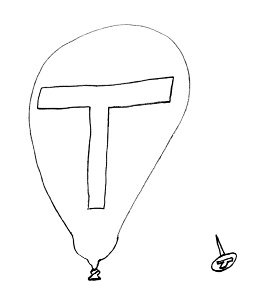Big truths and little truths

The world has many little truths, simple and elegant things you come to believe. Don't be cruel. Do good work. Entropy always increases. Ideas that are simple but you find them everywhere you look. Sometimes you find them on your own, sometimes you hear them from elsewhere, but as soon as they come to you you recognise them for what they are.
Big truths, on the other hand, take a long time to learn and aren't easy to understand. How do plants work? What's the best way to make decisions? Why does music sound good? There are no simple answers to these questions, and attempts to provide a little truth where a big truth is needed are responsible for all those facile and feel-good answers found in self-help bestsellers and late-night university conversations. Big truths don't make for neat one-liners, because they represent an attempt to describe genuine complexity.
But there is a danger with big truths; they have so many words and so much complexity that they begin to seem more true than little truths. Don't be cruel, except that there's a really complex interplay of philosophical ideas that makes being cruel to these particular people okay. Do good work, except that there are important business reasons why good work isn't a priority at the moment. Entropy always increases, but have you read my long and rambling treatise on zero-point energy?
The big truth has an infinite supply of arguments and lemmas and caveats, while the little truth can only restate itself. In the realms of normal debate, this makes the little truth pretty weak at capturing hearts and minds. The little truth is so naive! Look at all the complexity in the big truth! You're trying to tell me your little truth accounts for all of that? Obviously your little truth should still exist, but maybe only as one special case in our vast array of special cases.
But a little truth is a precious thing. Its power is that you don't need the wider context to use it. If being cruel is never justified, then you don't need complex reasoning or many years of eduction to figure out whether, in this instance, maybe it is. Yet one of the most terrible things about people is how easily they can get turned around and forget the little truths they believe because of whatever big truth is in town. In the worst case, people lose their humanity entirely as they subvert the little truths of their morality for the big truths of ideology.
That's not to say that little truths can't be wrong. They're subject to the same rules of evidence and usefulness as anything else. And sometimes even a big truth can prove a little truth wrong, as with relativity and newtownian mechanics. But be very nervous when a big truth tells you it supersedes or encompasses a little truth without actually disproving it. Be nervous when a big truth tells you that the little truth is unsophisticated. Be nervous when told you would understand if only you bought into all the complexities of this big truth.
Because chances are you're not being sold a big truth, but a big sham.